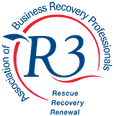Company Voluntary Arrangement
Company Voluntary Arrangement (CVA)
What is a Company Voluntary Arrangement (CVA)?
A CVA provides breathing space for the company; enabling it to improve cash flow by coming to an arrangement with its creditors. This can also involve debt forgiveness (some of the debt being written off).
Helping businesses in London and across the South East of England
At Cullen & Co, our licensed insolvency practitioners act:
- First as an advisor, making sure a CVA is right for the company
- Secondly, as the nominee to assist the directors to draft the CVA proposal
- As the supervisor, once the CVA is approved


Liquidation may not be the only solution
In majority of the CVA cases, the company makes affordable agreed monthly payments to the supervisor who in turn distributes the money on a pro-rata basis amongst the unsecured creditors. The term can vary, typically it can be up to five years. The amount paid to the creditors can be a repayment in full or a percentage of the debt.
The CVA process:
Speak to one of our licensed insolvency practitioners in Epsom. They will act as an advisor first, discussing and reviewing the company’s position. They will talk you through the options.
The directors will work with the insolvency practitioner to draft a proposal to the creditors.
This will detail:
- The company’s history, the reasons why it is in financial difficulty and how it will avoid future problems
- The company’s current financial position and predictions of future cash flows
- The amount the company can afford to pay into the CVA, the term, and the resulting return to creditors
- List of creditors
The insolvency practitioner acts as the nominee and issues the proposal to creditors.
The creditors vote to either approve, reject or modify the CVA. At least 75% of the voting creditors need to vote in favour of the CVA for it to be approved.
If approved, the CVA starts and the company needs to adhere to the terms, making the payments as agreed. The insolvency practitioner acts as the supervisor, ensuring the payments are received, the creditors’ claims are agreed and the distributions are made accordingly.
The CVA is completed once the terms have been met and the supervisor issues the final report and a certificate of completion.
Benefits of a CVA
A CVA has a number of advantages, not only for the company but its creditors:
- The CVA enables the company to continue to trade
- The CVA provides a breathing space from creditors and the company is protected from legal action by the creditors
- The directors are still running the company (the insolvency practitioner acts just as the supervisor of the CVA)
- The company pays an affordable monthly payment each month
- Creditors’ debts are frozen - no interest or charges can be applied once the CVA starts
- A CVA is a cost-effective alternative to other insolvency procedures
- Some of the debt can be written off


Consequences of a CVA
The consequences of a company entering into a CVA should be noted:
- The directors need to understand why the company has struggled and make appropriate changes to turn the situation around, otherwise despite the CVA the company could fail
- The company will have to adhere to the terms of the CVA otherwise the insolvency practitioner will have to terminate the arrangement, which could lead to the company entering into liquidation
- The CVA is registered at Companies House and will in turn show on the company’s credit file; this will make it more difficult for the company to seek credit during the first part of the CVA
Our team will guide you through every step of the process and help you work through your financial difficulties. If you are located in London, please get in touch
with us for honest insolvency advice.
Cullen & Co of Epsom offers practical insolvency advice for businesses in South East England.
Call us on
0203 8877 200
0203 8877 200
Thank you for contacting us.
We will get back to you as soon as possible
We will get back to you as soon as possible
Oops, there was an error sending your message.
Please try again later
Please try again later


Cullen & Co UK Limited is a limited liability company registered in England and Wales with registration number 10496128.
Registered Office: 197 Kingston Road, Epsom, Surrey, KT19 0AB
Registered Office: 197 Kingston Road, Epsom, Surrey, KT19 0AB
Directors: Lauren R Cullen MAAT FCA MABRP and Anthony J Cullen BSc (Hons).
Consultant: T J Thompson
L R Cullen is licensed as an insolvency practitioner in the UK by the Institute of Chartered Accountants in England and Wales.
| Privacy Policy |
© 2024. The content on this website is owned by us and our licensors. Do not copy any content (including images) without our consent.

